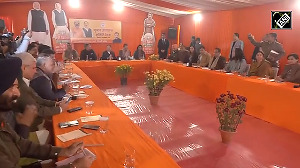"India is growing at an unprecedented rate. But there are concerns. How much of the benefits of growth are shared with the poor?" the study commissioned by World Bank and Department of International Development said.
"Given its large population, the pattern of poverty reduction in India will have a significant bearing on whether the millennium development goal of halving global poverty by 2015 is achieved," the study jointly carried out by Timothy Besley, Robin Burgess and Berta Esteve-Volart, said.
India has reduced its poverty level to less than 26 per cent but the number of people below poverty line is still a staggering 260 million (2.6 crore).
During the last 40 years, the study said economic growth was given more importance than income distribution and inequality. Service sector growth was one of the important source of poverty reduction, it added.
The London School of Economics mooted a five point agenda to reduce poverty in India - accountability of government, relaxation of labour laws, increasing access to bank finance to rural poor, increasing literacy level and land reforms.
Elaborating on the 5-point agenda, Besley said political economy must take centre stage in efforts to reduce poverty and government needs to be more responsive to needs of citizens.
Deregulation of labour laws to make it more pro-employer has helped some of the states to log higher economic growth and reduce urban poverty while those adopting pro-worker policies witnessed higher unemployment, he said.






 © 2025 Rediff.com -
© 2025 Rediff.com -